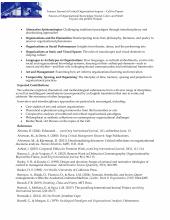Friedrich Nietzsche’s writings are currently threatened in that he is he treated only as a philosopher or a poet, and his relationship with twentieth century politics and latterly Management theory is largely ignored, excepting of course when he is held to be responsible for the growth in Fascism. In this paper an attempt will be made to show that Nietzsche should not simply be considered as the deracine par excellence with no interest with more general humanitarian concerns.
This paper presents a background to Nietzsche and his relationship to Managerialism and then provides a story written in Glaswegian argot of the relationship between a recruit to a Law Enforcement Office in Glasgow, Scotland and his new Manager. An interesting tale about performance management, illustrates how the abuse of power hides personal and organizational dysfunctionality.
Another key feature in the twist at the end of the tale is the manifestation of simulacra in performance measures relating to inspection tasks, where we see that ‘work not done but recorded’ becomes more important, more ‘real’ than ‘work done but not recorded’. This is the excess of history.
The story is written in the Glaswegian vernacular partly as homage to the renowned author James Kelman, but more significantly in an attempt take us closer to the lived experience of the actors – as opposed to the more usual sanitised accounts which abound in the management literature. The language is surprisingly ‘industrial’ in what is regarded as a ‘professional’ setting.





